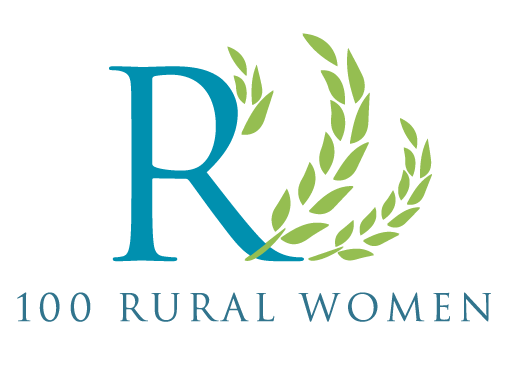“There’s always a pathway forward. It’s just about finding it and figuring out how do we get there?”
Brigid joined the Center for Community Vitality in fall 2008. She conducts analyses and writes reports for the Economic Impact Analysis (EIA) program, which she helped launch in early 2009. Since then, the EIA program has issued more than three dozen studies, covering numerous economic sectors in Minnesota – including tourism, education, manufacturing, retail, infrastructure and local foods.
We are excited to feature her through our Spotlight Profiles.
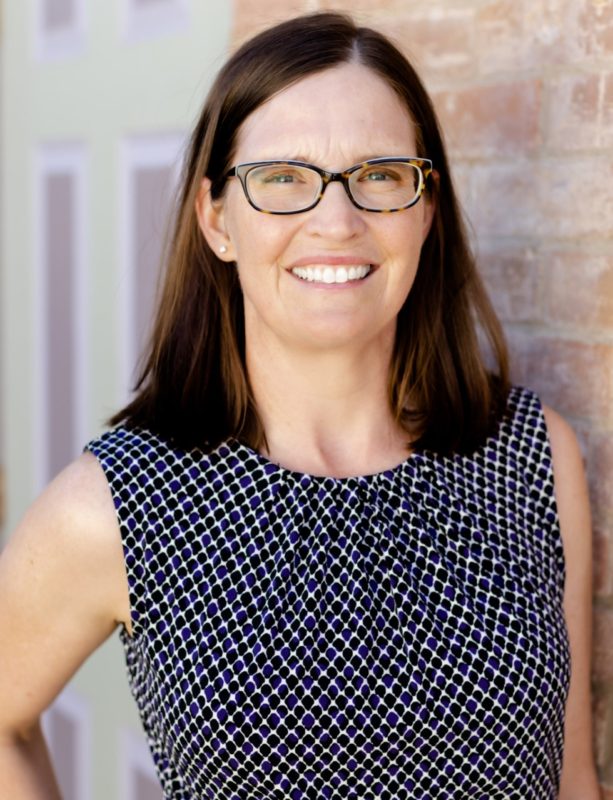
Question: Tell us about yourself
Answer: My name is Brigid Tuck and I am the senior economic impact analyst for the University of Minnesota Extension Center for Community Vitality [a role I have held since 2008]. Essentially, our focus is really on helping to strengthen Minnesota. We do that through work around leadership and civic engagement, community economics, and tourism. I grew up in rural Minnesota. I went to the University of Minnesota to get my Master’s degree in Applied Economics and I have my bachelor’s degree from University of Minnesota-Morris.
Besides my work, I also consider myself a “serial” volunteer. I got elected to my school board in 2018 where I serve as chair. I also volunteer for the Le Sueur Friends of the Library, as well as Le Sueur County Parks Board and I serve on the board of the PrairieLand Economic Development Commission.
Question: Describe your connection to rural America for us?
Answer: First of all, I grew up on a farm in rural Minnesota. So I grew up on my family farm. We are the fifth generation. My children are the fifth generation of the Doherty’s to live on the family farm. So, certainly have that long-standing connection to rural America. As you know, there are a lot of really wonderful things about growing up in a small town and I certainly benefitted from all of those.
In my job, I have the opportunity to travel the state of Minnesota and work with communities to really help them think about their economics and how they function. Additionally, how to grow their economy and expand. In that, I’ve really had the opportunity to understand what makes every community unique and special. You know, it seems like in a way we look at greater Minnesota and we want to kind of classify it as one block of things. But in reality, in every community, I can go to a community of the 4,000 people in one area and it looks very different than a community with the same number of people in another part of the state. So, I’ve really enjoyed getting to know Minnesota and getting to know what makes us special and different in our own communities.
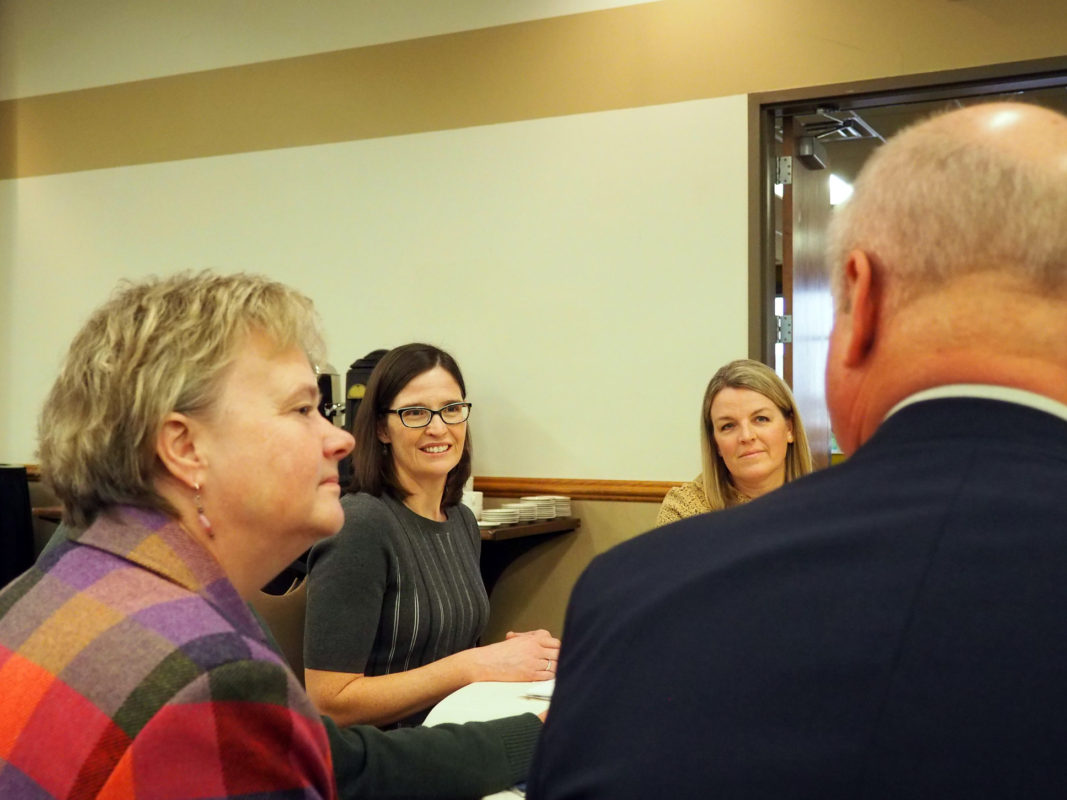
Question: Tells us about a moment you felt discouraged and how you overcame it.
Answer: Yeah! Well, as school board chair, there has been a lot of discouraging moments along the way. Especially when it comes to things like budget cuts and maybe having to deal with staffing issues and those kinds of things. One of the tough parts in some ways, about being an elected official, is you don’t get much positive feedback. You know, in your real job, you will maybe do a presentation and people will say, “Hey! That was a really good presentation. I learned a lot”. Or you’ll do an evaluation with your supervisor and they’ll tell you, “You know, you’re doing good work. Keep it up”. But, as an elected official, you don’t get that. So, it can feel pretty discouraging. Am I making the right decisions? I spend a lot of time, you know, reflecting on was that the right decision for our community.
Nevertheless, I think there’s a couple of things that helped me overcome that. One is that I have a super talented board. I respect everyone else on my school board. They are amazing leaders in their own right. And so, when you’re surrounded by those kinds of people, it really, the discussion that we have at the board table is very rich. And, bringing those diverse voices and opinions really helps us to make better decisions. So, I think that points to the need to continue leadership. You know, growing leaders and cultivating leaders in our communities, because it is so valuable.
Secondly, I really rely on the positivity of the staff. In particular, going into our buildings and hearing about all the great work and the things that are happening with the students. The way that students are being encouraged and uplifted in our buildings is really what gets me up the next days and say, “Okay, I can do this. I can keep going”. Coupled with that, I’m just a positive person. So I spend some time… I process that disappointment and that discouragement. Then I just get up the next day and try to figure out what’s that pathway forward. Because there’s always a pathway forward. It’s just about finding it and figuring out how do we get there?
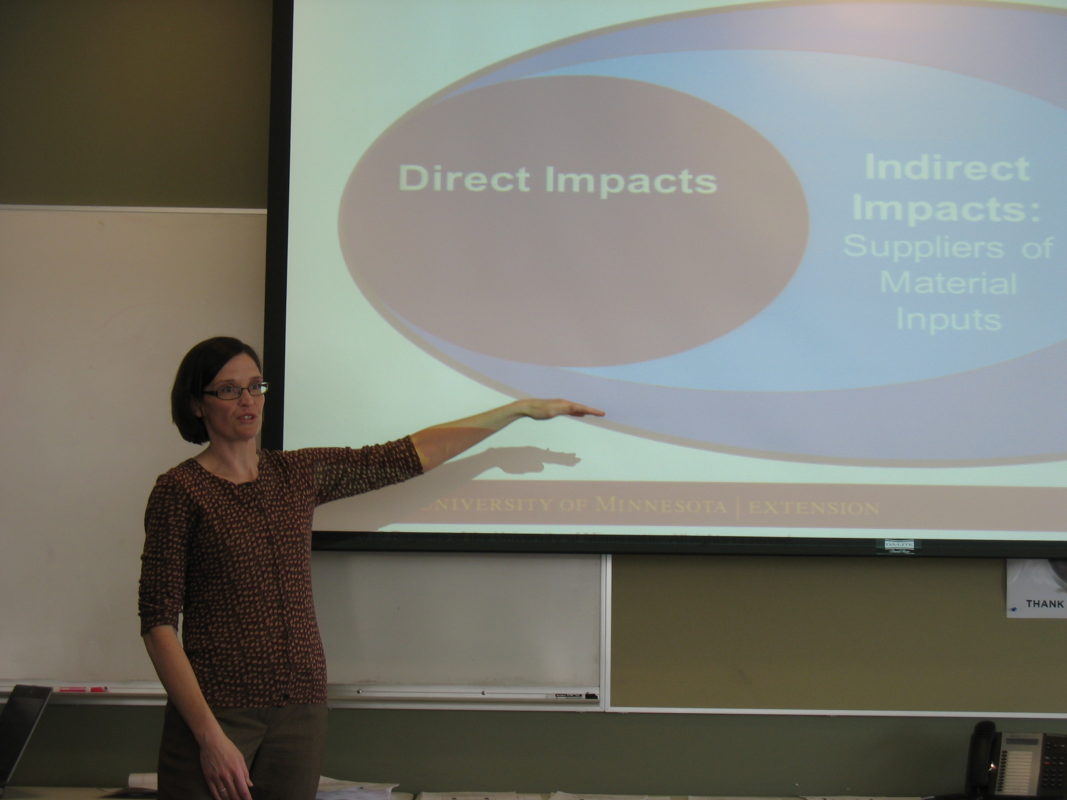
Question: How do you lead and create change in your community and how can your community better support rural women?
Answer: Change is hard and I am not good at it. In my field of community development, the focus is on helping people see the change and find the positives. Often it is finding one or two respected individuals in the community who are willing to speak up and change the narrative. In my leadership role, I have focused on keeping the dialogue open. I attempt to listen. It is in listening that I can find paths forward to make positive change.
In supporting rural women, I think we need to continue to encourage them. Everyone wants to feel their work makes a difference and that they are valued and appreciated. When they do, they are more confident to move into leadership roles.
Question: If you could give one piece of advice to your former self, what would that be and why?
Answer: The world is a very big place. So this would be my advice to my teenage self. There are incredible advantages to growing up in small towns, however, one can also lose perspective. I was the nerdy, quiet, shy kid in high school and I did not always fit in. When I went off to college, I found there were lots of nerdy, shy kids in this world!
Now I work on a team of people who share my passion for building a better Minnesota. So, I credit a lot to that continual message from my dad. But, I was also lucky to have really strong and encouraging women in my life between my mom and my grandmothers. You know, I grew up in the town that they grew up in. So, I had my grandparents, my aunts, my uncles all around me to encourage me and support me. Then, I think I was doubly lucky, then, to have a father that also supported, you know, he always supported the women in his life to go forward and achieve their dreams as well.
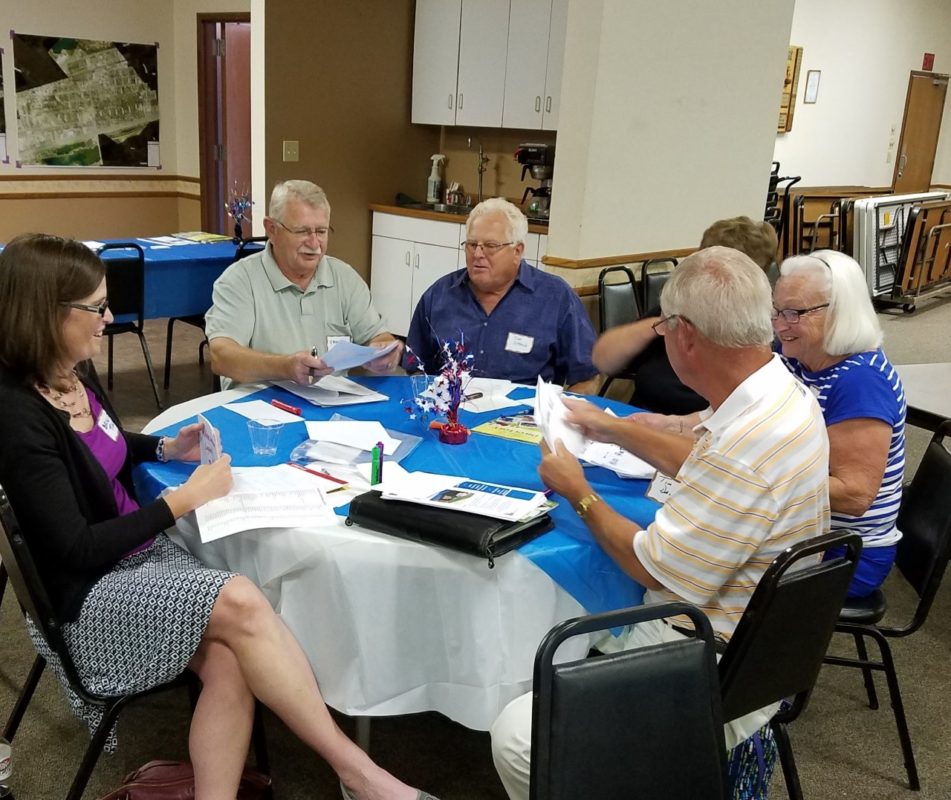
Question: Who or what has been your biggest inspiration?
Answer: Well, when I was a kid, every day when we would… My dad was the one who actually kind of pack us off and sent us to school. We would go out the door and we’d be running up the driveway trying to make the school bus on time. He would open the door and he would yell at us, “Remember you can make a difference”. I think that stuck a little more than he intended. With that, I really truly feel like, you know, we can make differences in our communities. If we want positive change, it’s up to us to step forward and be a part of that and to drive that change.

